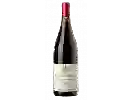
Winery Louise d'EstreeBrut Rosé
This wine is a blend of 3 varietals which are the Cabernet franc, the Chardonnay and the Chenin blanc.
This wine generally goes well with fruity desserts, pork or vegetarian.
Food and wine pairings with Brut Rosé
Pairings that work perfectly with Brut Rosé
Original food and wine pairings with Brut Rosé
The Brut Rosé of Winery Louise d'Estree matches generally quite well with dishes of beef, pork or game (deer, venison) such as recipes of braciola (southern italy), lentils and morteau sausages or duck breast with black figs.
Details and technical informations about Winery Louise d'Estree's Brut Rosé.
Discover the grape variety: Cabernet franc
Cabernet Franc is one of the oldest red grape varieties in Bordeaux. The Libourne region is its terroir where it develops best. The terroirs of Saint-Emilion and Fronsac allow it to mature and develop its best range of aromas. It is also the majority in many blends. The very famous Château Cheval Blanc, for example, uses 60% Cabernet Franc. The wines produced with Cabernet Franc are medium in colour with fine tannins and subtle aromas of small red fruits and spices. When blended with Merlot and Cabernet Sauvignon, it brings complexity and a bouquet of aromas to the wine. It produces fruity wines that can be drunk quite quickly, but whose great vintages can be kept for a long time. It is an earlier grape variety than Cabernet Sauvignon, which means that it is planted as far north as the Loire Valley. In Anjou, it is also used to make sweet rosé wines. Cabernet Franc is now used in some twenty countries in Europe and throughout the world.
Informations about the Winery Louise d'Estree
The Winery Louise d'Estree is one of wineries to follow in Vallée de la Loire.. It offers 7 wines for sale in the of Loire Valley to come and discover on site or to buy online.
The wine region of Loire Valley
The Loire Valley is a key wine region in western France. It follows the course of the Loire River on its Long journey through the heart of France, from the inland hills of the Auvergne to the plains of the French Atlantic coast near Nantes (Muscadet country). Important in terms of quantity and quality, the region produces large quantities (about 4 million h/l each year) of everyday wines, as well as some of France's greatest wines. Diversity is another of the region's major assets; the styles of wine produced here range from the light, tangy Muscadet to the Sweet, honeyed Bonnezeaux, the Sparkling whites of Vouvray and the juicy, Tannic reds of Chinon and Saumur.
The word of the wine: Castle
A term often used to designate wineries, even if they do not have a real castle.














